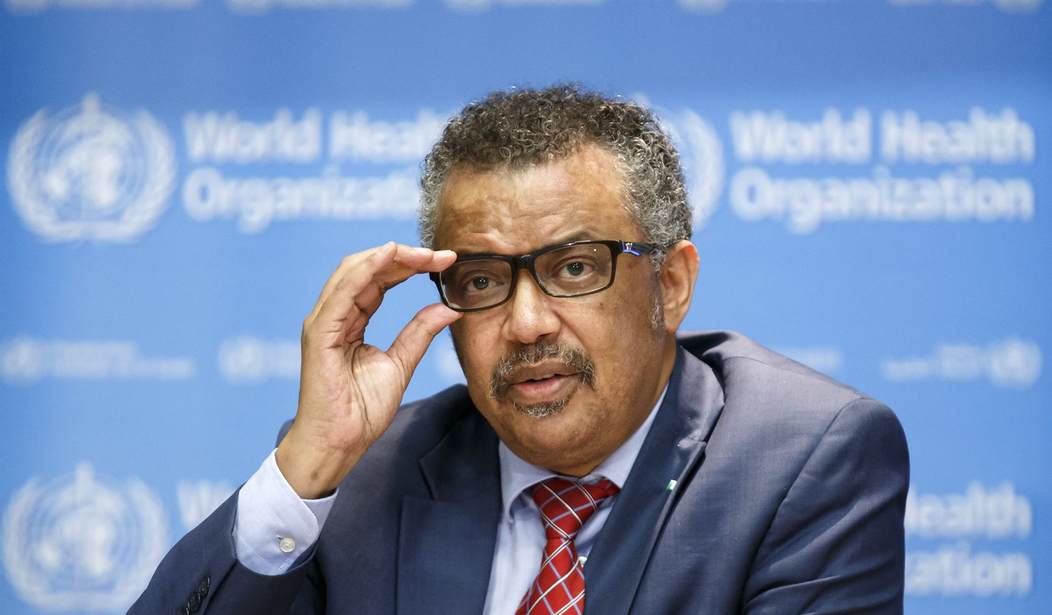The World Health Organization thinks that drug companies are ripping off cancer patients.
For every dollar these firms invest in research and drug development, they supposedly reap excessively high profits. In a new report, the global health body urges governments to consider "strengthening pricing [control] policies at the national and regional levels."
The report is deeply flawed -- and its recommendations are counterproductive. Instead of promoting price controls that reduce access and deter research, the WHO should advocate for policies that bolster innovation and boost access to lifesaving drugs.
The report, which examined 99 cancer therapies, underestimates the risk, expense, and length of drug development. The price of cancer drugs simply reflects those realities -- and the value they offer patients.
Consider what it takes to bring a drug from the initial research and development phase to a doctor's office.
The WHO claims it costs $794 million to bring a single drug to market -- and that most companies are able to recoup this investment within three years.
But this estimate is wildly off; it comes from a study that was widely criticized for ignoring the high rate of research failures.
Just one in 1,000 promising compounds that enters pre-clinical trials makes it to human testing. Only about one in 10 of those potential medicines makes it through clinical trials and receives FDA approval. For cancer drugs, the odds are even more daunting. Just one in 20 potential oncology medicines advances from Phase I clinical trials to approval.
Every drug that makes it to market has to pay for itself and all the drug company's failures. As a result, the true cost of developing a single medicine is estimated at $2.6 billion. This process takes about 10 to 15 years, on average.
Recommended
Price controls would steer investment dollars away from such risky endeavors. Without any chance of recouping their upfront research and development costs, drug development would dry up, along with future cures.
The United States is the world-leader in drug development because we recognize the value of innovative medicines. In 2016, biopharmaceutical companies poured $90 billion into research and development efforts in the United States. More than half of all drugs in development globally -- including over 1,000 new cancer drugs -- spring forth from U.S. laboratories.
Americans are healthier for it. Thanks in part to the development of new oncology drugs, U.S. cancer death rates have dropped 26 percent over the past three decades. New medicines are responsible for more than 70 percent of recent cancer survival gains.
These advances help lower overall costs, both for the health system and society at large.
This is true even with the newest, most costly cancer drugs. Consider "chimeric antigen receptor T-cell therapies," or CAR-Ts. These therapies are extraordinarily advanced -- they re-wire the body's own immune system to recognize and attack cancer cells. But they aren't cheap -- the one-time treatment has a list price of $373,000.
Over time, though, these medicines easily pay for themselves.
Consider a 45-year-old mother with a rare type of non-Hodgkin lymphoma that has failed to respond to other treatments. If the CAR-T eliminates her cancer, she'll avoid costly chemotherapy and radiation and lengthy hospital stays. And she'll be able to live, with decades left to work and raise her family.
That adds up. Between 1988 and 2000, improvements in cancer survival generated just under $2 trillion in "social value," according to one study.
Cancer drugs are frustratingly expensive, of course. But the key to making these drugs affordable without stifling research and development is to encourage competition -- and focus on how we pay for them.
The benefits of competition are obvious.
When Sovaldi, a "direct-acting antiviral" that promised to cure hepatitis C, hit the market in 2014, the medicine was widely criticized for its $84,000 price tag. Today, though, several similar treatments are on the market -- and some cost about 70 percent less.
Innovative payment arrangements could make paying for these medicines a bit easier.
As one example, several companies are pursuing "outcomes-based contracts" that peg prices to the effectiveness of their drugs. Such contracting models are becoming especially popular for cancer medicines.
"Healthcare loans" are another model worth exploring. These arrangements would allow patients to pay off the cost of drugs over time, like a mortgage. Louisiana has adopted a "Netflix model" to pay for Hepatitis C drugs, wherein the state pays an annual fee to a drug company in exchange for unlimited access to a drug.
Drug development is expensive. So too are the resulting drugs. But in the long run, by improving and extending life, advanced treatments are worth it.
























Join the conversation as a VIP Member